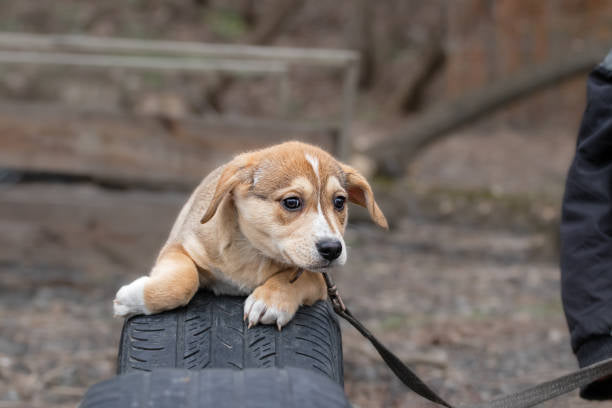
Puppy Socialization 101: Building a Confident and Happy Dog
Socializing your puppy is one of the most important steps in ensuring they grow up to be a confident and well-adjusted dog. Early socialization helps puppies develop the skills they need to interact positively with people, other animals, and various environments. Here’s everything you need to know about puppy socialization and how to get started.
Why Socialization Matters
1. Behavioral Development: Puppies are most receptive to new experiences between 3 and 14 weeks old. Proper socialization during this period helps prevent behavioral problems later in life.
2. Confidence Building: Exposing your puppy to different sights, sounds, and experiences helps build their confidence, making them less likely to develop fear or aggression issues.
3. Better Adaptability: Socialized puppies are more adaptable to changes and new situations, making them easier to train and manage.
Key Elements of Puppy Socialization
1. Exposure to People: Introduce your puppy to a variety of people, including men, women, children, and people wearing different attire (hats, uniforms, etc.). This helps them become comfortable around all types of individuals.
2. Interaction with Other Dogs and Animals: Arrange playdates with other vaccinated puppies and friendly adult dogs. Exposure to other animals, such as cats, birds, and small pets, is also beneficial.
3. New Environments: Take your puppy to different places such as parks, pet-friendly stores, and quiet streets. Vary the environment to include different surfaces (grass, concrete, sand) and levels of activity (busy, quiet).
4. Handling and Grooming: Get your puppy used to being handled by touching their paws, ears, and mouth. This makes vet visits and grooming easier in the future.
Practical Tips for Socializing Your Puppy
1. Take it Slow: Start with calm, controlled environments before moving to busier areas. Gradually increase the level of stimuli as your puppy becomes more comfortable.
2. Use Positive Reinforcement: Reward your puppy with treats, praise, and playtime for calm and positive interactions. This helps create a positive association with new experiences.
3. Observe Body Language: Pay attention to your puppy’s body language. Signs of stress include cowering, tail tucked, and excessive panting. If your puppy seems overwhelmed, remove them from the situation and try again later.
4. Puppy Classes: Enroll in a puppy socialization class where your puppy can safely interact with other dogs and people under professional supervision. These classes also provide valuable training tips and techniques.
Common Mistakes to Avoid
1. Rushing the Process: Socialization should be a gradual process. Don’t overwhelm your puppy with too many new experiences at once.
2. Forcing Interactions: Never force your puppy into a situation they are clearly uncomfortable with. This can lead to fear and anxiety.
3. Skipping Socialization: Missing the critical socialization period can result in a fearful or aggressive dog. Make socialization a priority from the moment you bring your puppy home.
Conclusion
Proper socialization is crucial for your puppy’s development and well-being. By exposing your puppy to a variety of experiences in a controlled and positive manner, you’re setting the foundation for a happy, confident, and well-adjusted dog. Remember, socialization is an ongoing process, so continue to introduce your dog to new experiences throughout their life.
Invest the time and effort in socializing your puppy, and you’ll be rewarded with a loyal and loving companion for years to come. Happy socializing!
